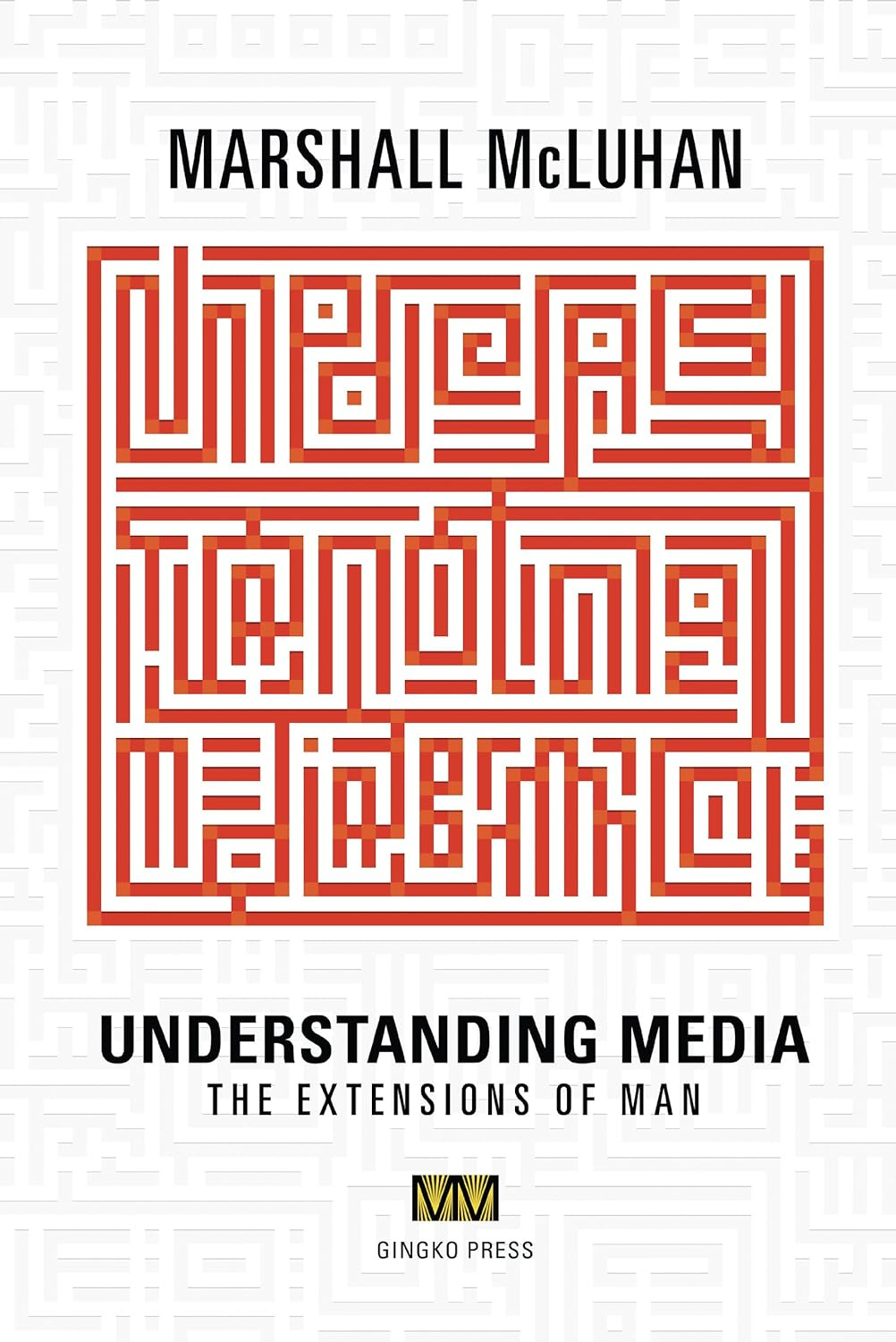What A Blind Card Mechanic Taught Me About AI
Thinking about advanced technology, magic, and illusion
First a note! On Saturday I was delighted to see an email in my inbox alerting me that my recent post on growing up without grades had been featured in this week’s edition of
. A special welcome to those of you who have recently subscribed! Whether you have been reading since I started writing this Substack two years ago or just subscribed last weekend, thank you for being here.As always, these essays are free and publicly available without a paywall. If you are able, the best way to support my writing is by becoming a patron via a paid subscription.

Any sufficiently advanced technology is indistinguishable from magic.
- Arthur Clarke
"Card mechanic? I'm sorry, did you mean car mechanic?"
Every Friday morning for the past eight years or so I roll out of bed sometime between 6 and 6:30 am and make my way across town to spend an hour with a group of guys from church. The crew is pretty consistent. Most of the guys are there pretty much every week or only miss a week or two every few months. But every so often, one of the guys will invite a guest or friend who happens to be in town.
I walked into the room to the sound of cards being shuffled in the background. I bet you can hear it in your head right now. And when I say being shuffled, I don’t mean shuffled and then set down—these cards were in an almost constant state of being shuffled and reshuffled and reshuffled again. This is strange, I thought to myself. The guys in this group are not exactly of the straight-collared persuasion of "don't drink, smoke, or chew...or go with the girls who do" but our Friday morning routine was to sit around the table to read and discuss a Bible passage, not play a game of hold 'em.
As I got closer I got a better sense of what was going on. The man at the table was none other than Richard Turner, one of the most famous card magicians alive today. But if Richard were reading this (and you better believe I’m gonna send this post to him after it’s out), he'd correct my error: Richard does not call himself a magician.
The correct terminology is card mechanic. Take it from the man himself. In his words:
A mechanic is somebody who can fix something. An auto mechanic fixes a car. A body mechanic is a professional killer. I’m a card mechanic. I can fix a card game.
Richard can pull off some astounding things with a deck of cards. Oh, and did I mention that he’s blind?
What Richard can do with cards tells us something not only about the nature of magic but also about technology and how we should be thinking about AI. As we encounter enchanting technologies, we must be careful not to let ourselves be fooled by illusions.
The Absent-Minded Professor is a reader-supported guide to human flourishing in a technology-saturated world. The best way to support my work is by becoming a paid subscriber and sharing it with others.
Magic, Technology, and Illusion
You’ve probably heard the line about technology and magic from renowned science fiction author Arthur Clarke that I quoted at the top of this post. But what you may not know is that it's the last of three "laws" that Clarke is known for formulating. To fully understand the third, the context of the first two is important. Here are Clarke's three laws in full.
When a distinguished but elderly scientist states that something is possible, he is almost certainly right. When he states that something is impossible, he is very probably wrong.
The only way of discovering the limits of the possible is to venture a little way past them into the impossible.
Any sufficiently advanced technology is indistinguishable from magic.
How might Clarke's insights apply to our current moment in AI?
First of all, it's important to note that we are using "law" in the sense of Moore's Law and not the law of gravity. Clarke's statements are based on observing trends and correlations in the development of technology, not making formal scientific claims based on causality. Although correlation is not as strong as causation, it’s still meaningful. We're still relatively early in the AI revolution, so we are hearing lots of predictions. Clarke’s first law reminds us that as experts are pontificating on the future, we should interpret their projections with a healthy dose of skepticism. We should be careful not to put too much trust in an expert's ability to accurately predict the future, especially when it comes to things they deem to be impossible.
The second statement helps to paint a picture of technology development at the cutting edge. As a PhD student, I frequently heard maxims of this type: first you need to find the edges of human knowledge, then you need to venture out beyond it. Of course, these things beyond the realm of what we believe to be possible were never truly impossible, we just didn't have the vision to see what might be possible or the tools to be able to achieve it. We have been seeing this dynamic play out time and time again over these last few years of technological development in AI.
Last but not least, Clarke's final law says something profound about technology. When taken in isolation, it paints the picture of awe and amazement at the marvels of technology. Technology is enchanting. Maybe this reminds you of the first time you used an iPhone or played with a VR headset. Most recently for me, it brings to mind memories of when I recently test-drove the new Apple Vision Pro headset.
But to understand technology through this lens is to ignore the reality of what magic is. This is the genius of Clarke's statement and where my interaction with Richard Turner has something to teach us.
Trust not thine eyes
Magic, of course, is at its core about illusion. It’s about sleight of hand, carefully planned and executed maneuvers, and the misdirection of our attention.
AI in its various incantations is magical. A lot of eyes in the general public are on LLMs like ChatGPT, Gemini Pro, Claude, or the dozens of other popular LLMs that have been developed over the last several years, but this is only part of the story. They may be taking up most of the airtime, but we’re still in the first few chapters and more significant impacts of AI, both positive and negative, are still coming.
While AI tools may seem like they are performing magic, they are the complex and sophisticated operation of an advanced technical system. Clarke's third law reminds us that in the present our technology looks like wizardry. But with enough time, the illusion begins to fade as the mechanisms behind the trick begin to make themselves apparent.
The magic of technology is an illusion
What Richard Turner can do with a deck of cards is nothing short of amazing. If you don't believe me, check out Dealt, the 85-minute documentary on Richard's life, or if you want a shorter version, this clip from when Turner fooled Penn and Teller on their TV show Fool Us. While Richard’s tricks look like magic (can confirm, I’ve seen it), it's nothing more than an illusion. What the clip with Penn and Teller demonstrates, is that what makes Turner tick is his craft, the skills and techniques that he has developed over many years which help him to trick his audiences so flawlessly.
It's tempting to treat AI like magic. It's hard not to be enchanted the first time you interact with an LLM like ChatGPT or take a look through the images generated with Midjourney. But all too often we stay in our amazement instead of realizing that the magic we sense is an illusion. When we do this, we relinquish our agency to the machine and allow it to direct us.
As I encounter these tools the question that continues to come to my mind is whether anything is truly ineffable. Is there anything fundamentally beyond our comprehension or ability to understand? Our ongoing experiences with this latest generation of AI tools and conversations are turning the spotlight on important and deep questions. Questions like:
What is the nature of consciousness?
Are humans more than biological machines?
Does the soul exist?
Is there anything in our world that is unknowable?
What does it mean to be human?
If nothing else, I am glad that AI is bringing these questions to the surface. These are the types of questions that are often hidden from sight in the realm of technology.
No one seemed to ask what the smartphone says about our vision of the good life or what the personalized newsfeeds on our social media feeds reveal about what we think the nature of the human need for community is. We’re seeing the downstream consequences of that lack of critical engagement now.
As we develop technology these rich philosophical, moral, and religious questions are always with us, but we all too often ignore them.
AI has not allowed us that luxury.
See the mechanic behind the magic
I learned a lot about magic the day I met Richard Turner. It gave me a healthy dose of skepticism and reminded me not to trust my eyes. Turner is so slick that even Penn and Teller need slo-mo to catch what he's doing!
The lesson to be learned about AI is similar: beware your senses. LLMs are trained on human language, expressing the illusion of human thought. Their sleight of hand is a sophisticated computer algorithm. These programs can regurgitate data from their inputs to form syntactically correct phrases and perhaps even convincingly appear to be thinking. But it's not magic, it's simply the illusion of a sophisticated, in this case artificial, mechanical system.
Arthur Clarke reminds us that advanced technology looks like magic. But read that statement backwards and you'll see that magic is nothing more than sufficiently advanced technology.
If we learn anything from Richard Turner, it should be that even a blind dealer can fleece you. May we be shrewd.
Reading Recommendations
Here are a few great pieces that I’ve read on Substack recently
started publishing on Substack recently and I’ve been enjoying his stuff. Check out this post with his interview with artist Lynda Barry to get a taste.I’ve enjoyed reading the reflections from Netflix co-founder
on his Substack. Marc’s recent post on the connection between being a good student and a good entrepreneur was a good read.Generative AI is polluting the internet.
shows us how in his great piece from late February.The Book Nook
I have long been inspired by Marshall McLuhan and his work, but as of yet have not directly read much of his writing. No longer! I picked up his book Understanding Media and have been enjoying the read so far. Lots of highlights so far, here are a few:
Electricity does not centralize, but decentralizes. It is like the difference between a railway system and an electric grid system: the one requires railheads and big urban centers. Electric power, equally available in the farmhouse and the Executive Suite, permits any place to be a center, and does not require large aggregations. This reverse pattern appeared quite early in electrical “labor-saving” devices, whether a toaster or washing machine or vacuum cleaner. Instead of saving work, these devices permit everybody to do his own work. What the nineteenth century had delegated to servants and housemaids we now do for ourselves.
How might this shape our view of AI?
Battle shock created by violent noise has been adapted for dental use in the device known as audiac. The patient puts on headphones and turns a dial raising the noise level to the point that he feels no pain from the drill. The selection of a single sense for intense stimulus, or of a single extended, isolated, or “amputated” sense in technology, is in part the reason for the numbing effect that technology as such has on its makers and users. For the central nervous system rallies a response of general numbness to the challenge of specialized irritation.
On the power of noise to numb our senses. Feels like an apt metaphor for much of our technology-swamped existence.
The Professor Is In
As we turn the corner into April, we are racing towards the end of the semester. Launch day at Dana Point for E80 is coming in a few weeks and I’m excited to show you some of the cool autonomous marine robots our students are building.
Leisure Line



Made some birthday cupcakes to celebrate our good friend who turned thirty this year on April Fool's Day. Not my best batch ever since I had to make a few substitutions, but I learned that buttercream icing can help to cover up mediocrity. If you’re curious, the recipe can be found here.
Still Life
Spring is here and the flowers are in bloom. Here’s one I happened upon on a walk this week.









Great piece, Josh. So glad to see you featured in that Substack Reads, guest written by the great Henry Oliver. I just picked up Ethan Mollick's new book and I'm coming at it with questions about his use of metaphors drawn from magic...centaurs, grimoires, and other images drawn from fantasy. I tend to think language scifi and fantasy mostly interfere with our understanding of what foundation models are doing, but I also find his explorations compelling in the sense that it can give us a handle on phenomena that are very hard to describe because they are so new. Your pointing to the role illusion plays in the way entertainers who call themselves magicians is very helpful in that context.
This was a really interesting read for me, thanks Josh. The most impressive thing for me I’ve noticed so far with writers on Substack is their ability to make a connection between simple topics and make profound connections. Not coming up with the most groundbreaking new theory, but taking the most mundane concepts and reframing them in a way to look differently and see the brilliance in something fairly normal to us, such as shuffling cards.